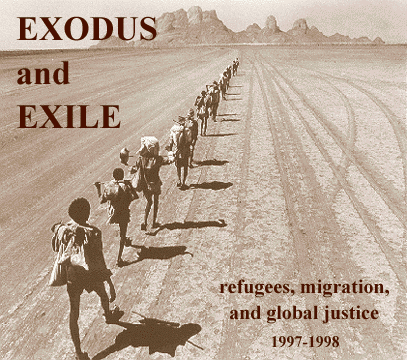1998 Exodus and Exile: Refugees, Migration, and Global Security

|
|
Human migration, voluntary and coerced, ranks among the most volatile issues confronting the world. Current U.N. Estimates indicate that there are 17 million refugees and 27 million internally displaced people. One person out of every 120 is uprooted. This course will probe the crises that have arisen from both the global increase in migration across national boundaries and the demographic shifts of uprooted peoples within sovereign states.
It will examine the causal forces -- political upheaval, armed conflict, persecution, redrawn borders, forced resettlement, starvation, poverty, environmental degradation, xenophobia, the search for economic betterment or family reunification -- that create these massive flows.
We will consider both historical examples -- viz. the Huguenots, the Irish potato famine, the flight of refugees from Nazi Germany, the population transfers of India's partition, and the forced relocations in South Africa - as well as contemporary controversies -- viz. ethnic cleansing of Hutus and Bosnians, German treatment of Turkish workers, migratory genocide in Afghanistan, environmental refugees of China's Three Gorges Dam, Vietnamese and Haitian boat people, Tibetan refugee populations, Palestinian and Cambodian refugee warrior communities, and the reassessment of immigration and asylum attitudes in France, Japan, the U.S. and elsewhere.
Our study will range from specific inquiries -- charges of UNHCR complicity in ethnic cleansing; the reorganization of Immigration and Naturalization Services -- to broader issues -- the relief-to-development continuum; gender and asylum; interpretations of international law, resettlement, repatriation; and the tensions of multiple cultural identities, loyalties and citizenship. How can countries best decide to respond to complex humanitarian emergencies? Are the forces of the global economy and worldwide political chaos so endemic and irresistible that they incapacitate states who seek to control their borders? Can and should governments attempt to change the conditions within states that engender refugees and illegal migrants?

